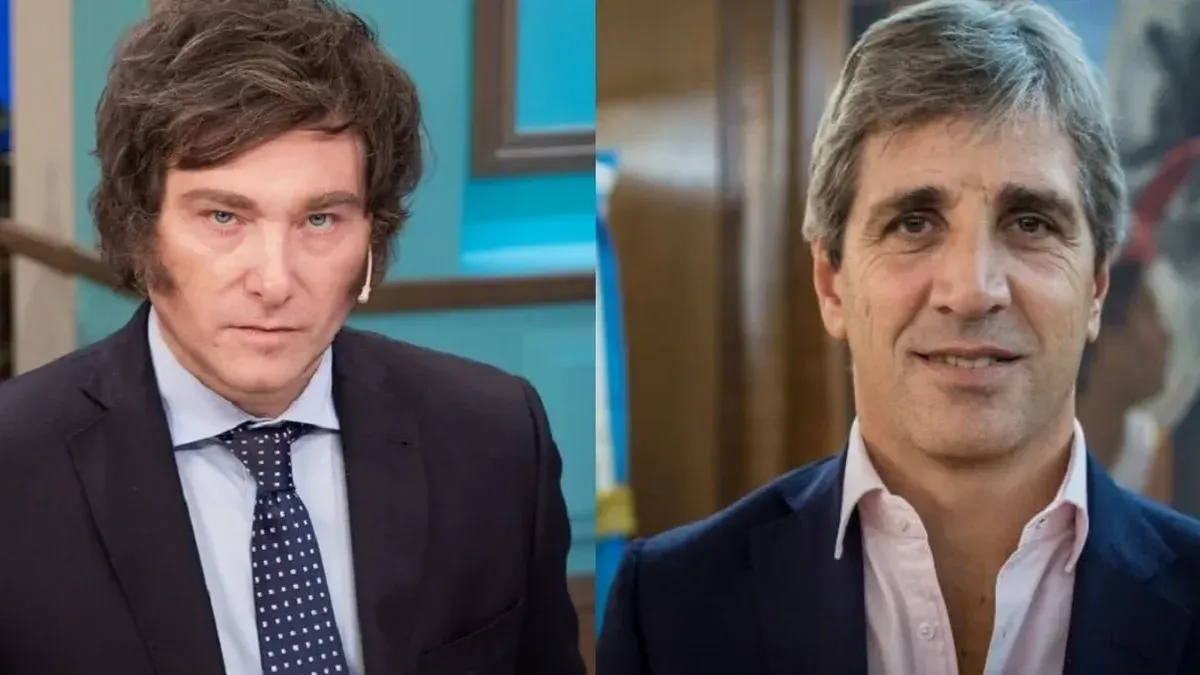Silence is consent. It serves Brazil, but also Argentina. Especially when it comes to the IMF. The Brazilian Minister of Economy Fernando Haddad has his Argentine counterpart, Luis Caputo, between his eyebrows. In the middle, as if it were a love triangle, is the head of the IMF, Kristalina Georgieva. Due to statements that have taken place in the last few hours, and within the framework of the spring meetings of the Fund that are taking place in Washington, Haddad has slipped that the organization withholds from Brazil what it gives to Argentina. They are not dollars, of course, but growth projections.
Brazil is most likely heading towards being the eighth largest economy on the planet measured in GDP this year, surpassing Italy. All projections give it with a jump. But in its predictions released yesterday, the organization played badly against President Lula Da Silva. He predicted an increase of 2.2% this year in the total produced and 2.1% in 2025.
And although previous estimates were lower, the Brazilian government considers that Georgieva’s technicians fall short. Just the opposite of the Argentine case. The IMF projects a fall of 2.8% for 2024, something that seems too benign when contrasted with the projections of the city’s main analysts, who indicate that the fall would easily reach 4%.
Dollar, spring and the Messi-financial poem
With his foot in Washington, Caputo will play his card. It is looking for some guarantee to, at a minimum, obtain US$5,000 million from the Fund that could arrive in credit-to-account format for future payments to the organization. Everything works, the minister reasons. Above all, the public recognition of the Fund for the Argentine economy. But the IMF has recovered its health and every time he publicly congratulates Argentina, he also accompanies that message with a substantial request to President Milei: time and again he has welcomed the “impressive progress,” but has asked to improve the “quality” of the adjustment.
Why has the IMF become so sensitive to the majorities that have been harmed by the draconian economic plan? It’s not sensitivity, perhaps. The explanation must be sought in the third party in contention at the external debt table: investment funds. Caputo seeks public support from the IMF, because that would unblock the entry of millions of dollars of pro-bicycle financial investment to Argentina. They would buy sovereign bonds (because the interest rate has been falling) and that would result in a drop in country risk, which would, in turn, make local debt more tempting.
But…what does Georgieva think? That Caputo wants that income of dollars from the investment funds to repay, in part, the investments that have already been made in the market in recent months. Furthermore, she considers that the minister would take advantage of the move to go back into debt with those same funds, which would once again seat another “player” at the creditors’ table who would compete with the IMF itself when it came to repaying the debt.. This is something Georgieva does not want. The IMF is only interested in Caputo lifting the exchange rate and in the BCRA accumulating enough dollars to begin paying the organization.
I lied that I like it: leave it for tomorrow
In that struggle, Caputo arrived in Washington to show him the surplus numbers. However, the move was clouded by the data that was released yesterday from the Treasury: The Government postponed payments of $1.61 trillion in the first two months to expand the fiscal surplus. And although the primary cash surplus for the first three months is within the parameters agreed with the IMF, above $3 trillion -already achieved between January and February-, the relevant data that is hidden from the Fund is that the half of this would have been achieved by delaying payments.
According to data from the General Treasury of the Nation, In February the Government increased what is called floating debt by $900,421 million, and thus accumulated a total of $1.61 trillion. These are expenses that have already been generated, but not paid. Among the most important payments postponed in February are $591,911 million that correspond to transfers, with a cumulative total of $884,783 million in the first two months. It must be taken into account that 2023 ended with a floating debt of $710,416 million.
There is more in this line. The preliminary numbers for March released by the Congressional Budget Office have given fiscal, primary and financial deficits. That is, in March the numbers returned to red: about $61,000 million in primary deficit and $355,000 million in the financial one. And although it is not something to beat one’s chest (these are relatively low figures), they would mark a change in trend, especially taking into account that the Government will have to start paying the arrears.
Red circle, dollar and Llao-Llao
Meanwhile, the President prepares his trip to Bariloche. Milei will visit the Llao Llao Forum, the meeting of businessmen and political leaders that begins today at the hotel of the same name.
A no small detail is that the presidents of Uruguay, Luis Lacalle Pou, and of Paraguay, Santiago Peña, will also participate, something that made noise in the Casa Rosada because at some point it was thought that they were disputing business attention with the Argentine president. However, from the organization They clarified to Karina Milei that there will be no more political leaders and that Milei will be the only speaker when the last day of the event closes next Friday.
It is known that the Forum worships confidentiality and also tends to pride itself on very rigorous protocol, which enables reserved conversations. However, the question remains about Milei’s willingness to take a group photo. The president usually escapes any instance that puts him on the same level as a businessman – except Elon Musk – or another president who is not a libertarian or liberal.
Will there be polaroids with businessmen? Perhaps one with Luis Lacalle Pou? Marcos Galperín (Mercado Libre) is confirmed: Marcos Bulgheroni (PAE); Agustín Otero Monsegur and Carlos Miguens (San Miguel citrus); Federico Braun (La Anónima); Martín Migoya and Guibert Englebienne (Globant); Sebastián Bagó (Laboratorios Bagó), and the businesswomen Karina Román (Logística Román) and Verónica Andreani (Andreani), among others.
According to reports, some international analysts have been invited to discuss the global context, specifically the Russian invasion of Ukraine and the recent attacks in the Middle East. Of course, the million dollar question will go in another direction: Can the local economy recover from the depressive shock imposed by the economic plan?
Source: Ambito




